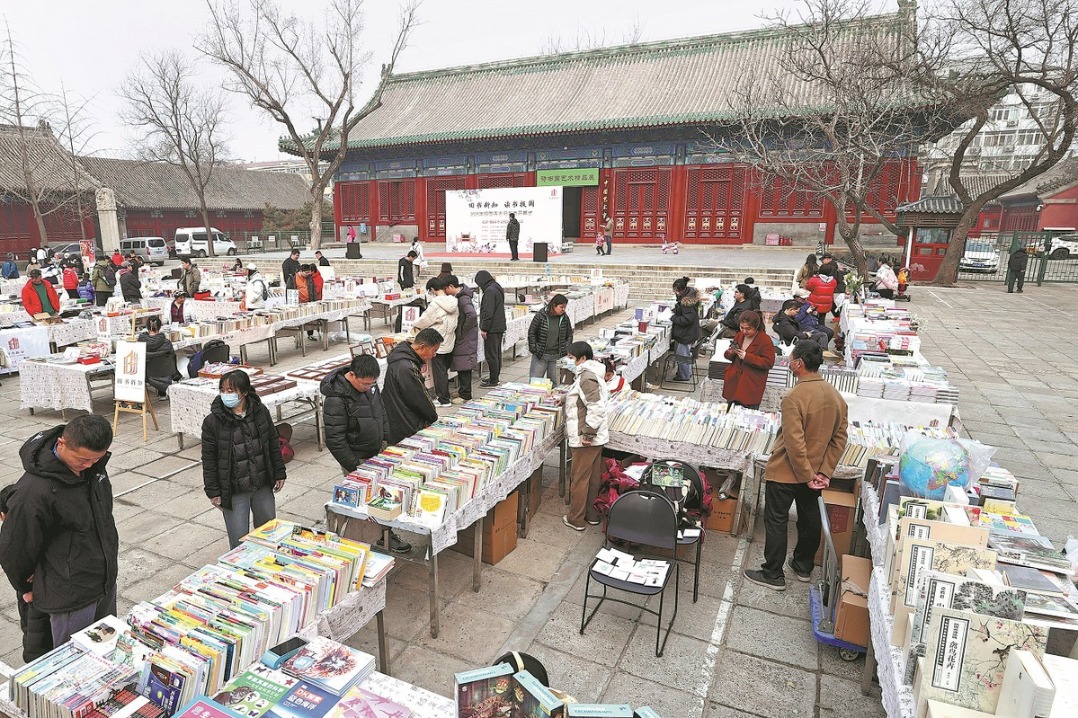Farmer in Ningxia trades his plow for pen


YINCHUAN-Li Shizhong, a farmer from the Ningxia Hui autonomous region, loves rainy days.
Such weather inspires him to write about the bittersweet experiences of life.
"When I was living in Xihaigu area, I used to yearn for rain. Cloud-shrouded skies would make us happy, and a gust of wind blowing it away disappointed us," said the 58-year-old, who now lives in Wuzhong city's Hongsipu district.
Deemed "one of the most unfit places for human settlement" by the United Nations in the 1970s, Xihaigu suffered from land reclamation, drought and a fragile environment.
Hongsipu, once part of the Gobi Desert, has now become one of China's largest settlement areas for people who have relocated from Xihaigu, with a population of about 230,000.
Li used to live in a mountainous hamlet in Xiji, a county in Xihaigu. Though his family had owned land about the size of two soccer fields, the wheat they fed on sometimes withered before the harvest season due to drought.
They could not raise cattle or sheep as the water they fetched from a small spring in the mountains was not even enough for them to drink.
"We were at the mercy of the rain," Li said, recalling that it made everyone happy, even though it caused problems for their mud-brick houses.
Education used to be a luxury in Xihaigu. Supported by his uncle, Li completed senior high school, a rare feat in his village, but he had to forgo further education due to financial hardship.
"My parents had no money to support me, so I decided to take up farming and help them," he said.
He didn't start writing until 2015, when he bought a new smartphone and began posting his work online while sitting in his new home in Hongsipu.
Li said his eagerness to write was triggered by his current carefree life which would have been unimaginable for him in the past.
Decades ago, Li drove tractors to Lanzhou, capital of neighboring Gansu province, with several villagers to purchase low-priced daily necessities and then sell them in his village.
"The entire village depended on me to buy what they needed," Li said. "But nowadays, shops are ubiquitous in every village, and more and more people shop online."
In the past, one square kilometer of land in Xihaigu could support as many as 22 people.
However, nearly 142 people were attempting to eke out a life on those relatively tiny parcels of land, with their living conditions further marred by poverty and the area's environmental fragility.
Things started to change, however, in the 1980s when a large-scale relocation project was pioneered in Xihaigu.
More than 350,000 people were relocated to places with better living conditions, where the Yellow River was a major water source.
Hongsipu was one such destination. It used to be a wasteland, but as a result of pump stations and pipelines, the water level rose by 300 meters to nourish the land.
"All plants grow well with water, and we can decide our own fate here," Li said.
Advancing with a pioneering spirit, the settlers planted trees and crops and built infrastructure, making Hongsipu their new home.
They also began growing cash crops such as goji berries, which have increased their incomes thanks to the prevalence of cold-chain logistics. In addition, rapid transportation has made it easier for them to go out and do part-time work.
Li often revisits his hometown.
"The barren land is green everywhere, especially in summer," he said, adding that villagers there now live in beautiful houses with running water and backyards for raising domestic animals.
As machines are now widely used in China's agricultural sector, Li has more time for himself. He enjoys drinking tea, growing flowers, reading, watching TV and tending to fruit trees in the courtyard of his house-just like an urban Chinese retiree.
He has chronicled the great change in Hongsipu over the past two decades in the form of poems, essays and stories.
The articles he has written include Goji trees sweeten villagers' lives, Kung Fu gym gets popular among village children, Rural tourism gets hot and Farmers kidnapped by land now become hotel managers.
Dozens of Li's pieces have gained traction online, and he has become a member of the local literary federation. Most of his time is now spent on writing and replying to his fans' reviews.
"I feel I am a freelancer now," he said.
Xinhua
- Ma pins hopes on youth from both sides
- IP regulator enhances steps to help Chinese companies going global
- 2024 was world's warmest year on record
- New guidelines for protection and governance of rivers unveiled
- HK-based food critic, writer Chua Lam dies at 83
- Shipping sector goes greener with new energy sources





































